The War That Ended Peace: The Road to 1914 (2013)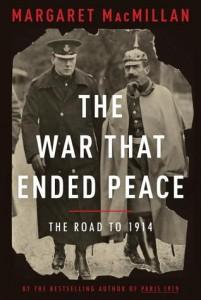
The First World War followed a period of sustained peace in Europe during which people talked with confidence of prosperity, progress, and hope. But in 1914, Europe walked into a catastrophic conflict that killed millions, bled its economies dry, shook empires and societies to pieces, and fatally undermined Europe’s dominance of the world. It was a war that could have been avoided up to the last moment—so why did it happen?
Beginning in the early nineteenth century and ending with the assassination of Archduke Franz Ferdinand, award-winning historian Margaret Macmillan uncovers the huge political and technological changes, national decisions, and just as important, the small moments of human muddle and weakness that led Europe from peace to disaster. This masterful exploration of how Europe chose its path towards war will change and enrich how we see this defining moment in history.
Verdict: 3/5
Go to top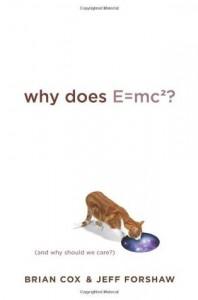
The most accessible, entertaining, and enlightening explanation of the best-known physics equation in the world, as rendered by two of today’s leading scientists.
Professor Brian Cox and Professor Jeff Forshaw go on a journey to the frontier of 21st century science to consider the real meaning behind the iconic sequence of symbols that make up Einstein’s most famous equation, E=mc2. Breaking down the symbols themselves, they pose a series of questions: What is energy? What is mass? What has the speed of light got to do with energy and mass? In answering these questions, they take us to the site of one of the largest scientific experiments ever conducted. Lying beneath the city of Geneva, straddling the Franco-Swiss boarder, is a 27 km particle accelerator, known as the Large Hadron Collider. Using this gigantic machine—which can recreate conditions in the early Universe fractions of a second after the Big Bang—Cox and Forshaw will describe the current theory behind the origin of mass.
Alongside questions of energy and mass, they will consider the third, and perhaps, most intriguing element of the equation: ‘c’ – or the speed of light. Why is it that the speed of light is the exchange rate? Answering this question is at the heart of the investigation as the authors demonstrate how, in order to truly understand why E=mc2, we first must understand why we must move forward in time and not backwards and how objects in our 3-dimensional world actually move in 4-dimensional space-time. In other words, how the very fabric of our world is constructed. A collaboration between two of the youngest professors in the UK, Why Does E=mc2? promises to be one of the most exciting and accessible explanations of the theory of relativity in recent years.
Verdict: 3/5
Go to topMatthew Quick – The Good Luck of Right Now (2014)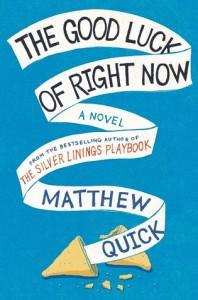
Call it fate. Call it synchronicity. Call it an act of God. Call it . . . The Good Luck of Right Now. From the New York Times bestselling author of The Silver Linings Playbook comes an entertaining and inspiring tale that will leave you pondering the rhythms of the universe and marveling at the power of kindness and love.
For thirty-eight years, Bartholomew Neil has lived with his mother. When she gets sick and dies, he has no idea how to be on his own. His redheaded grief counselor, Wendy, says he needs to find his flock and leave the nest. But how does a man whose whole life has been grounded in his mom, Saturday mass, and the library learn how to fly?
Bartholomew thinks he’s found a clue when he discovers a “Free Tibet” letter from Richard Gere hidden in his mother’s underwear drawer. In her final days, mom called him Richard—there must be a cosmic connection. Believing that the actor is meant to help him, Bartholomew awkwardly starts his new life, writing Richard Gere a series of highly intimate letters. Jung and the Dalai Lama, philosophy and faith, alien abduction and cat telepathy, the Catholic Church and the mystery of women are all explored in his soul-baring epistles. But mostly the letters reveal one man’s heartbreakingly earnest attempt to assemble a family of his own.
A struggling priest, a “Girlbrarian,” her feline-loving, foul-mouthed brother, and the spirit of Richard Gere join the quest to help Bartholomew. In a rented Ford Focus, they travel to Canada to see the cat Parliament and find his biological father . . . and discover so much more.
Verdict: 4/5
Go to top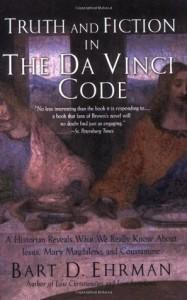
In his staggeringly popular work of fiction, Dan Brown states up front that the historical information in the The Da Vinci Code is all factually accurate. But is this claim true? As historian Bart D. Ehrman shows in this informative and witty book, The Da Vinci Code is filled with numerous historical mistakes.
Did the ancient church engage in a cover-up to make the man Jesus into a divine figure? Did Emperor Constantine select for the New Testament–from some 80 contending Gospels–the only four Gospels that stressed that Jesus was divine? Was Jesus Christ married to Mary Magdalene? Did the Church suppress Gospels that told the secret of their marriage? Bart Ehrman thoroughly debunks all of these claims. But the book is not merely a laundry list of Brown’s misreading of history. Throughout, Ehrman offers a wealth of fascinating background information–all historically accurate–on early Christianity. He describes, for instance, the discovery of the Dead Sea Scrolls; outlines in simple terms how scholars of early Christianity determine which sources are most reliable; and explores the many other Gospels that have been found in the last half century. In his engaging book, Ehrman separates fact from fiction, the historical realities from the flights of literary fancy. Anyone who would like to know the truth about the beginnings of Christianity and the real truth behind The Da Vinci Code will find this book riveting.
Verdict: 3/5
Go to topSimon Winchester – The Professor and the Madman: A Tale of Murder, Insanity and the Making of the Oxford English 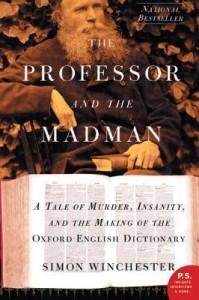
The Professor and the Madman, masterfully researched and eloquently written, is an extraordinary tale of madness, genius, and the incredible obsessions of two remarkable men that led to the making of the Oxford English Dictionary — and literary history. The compilation of the OED began in 1857, it was one of the most ambitious projects ever undertaken. As definitions were collected, the overseeing committee, led by Professor James Murray, discovered that one man, Dr. W. C. Minor, had submitted more than ten thousand. When the committee insisted on honoring him, a shocking truth came to light: Dr. Minor, an American Civil War veteran, was also an inmate at an asylum for the criminally insane.
Verdict: 4/5
Go to top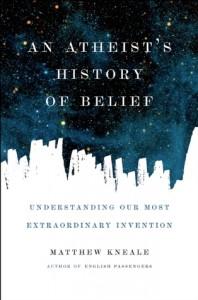
What first prompted prehistoric man, sheltering in the shadows of deep caves, to call upon the realm of the spirits? And why has belief thrived since, shaping thousands of generations of shamans, pharaohs, Aztec priests and Mayan rulers, Jews, Buddhists, Christians, Nazis, and Scientologists?
As our dreams and nightmares have changed over the millennia, so have our beliefs. The gods we created have evolved and mutated with us through a narrative fraught with human sacrifice, political upheaval and bloody wars.
Belief was man’s most epic labor of invention. It has been our closest companion, and has followed mankind across the continents and through history.
Verdict: 4/5
Go to topAndrew Roberts – The Storm of War: A New History of the Second World War (2009)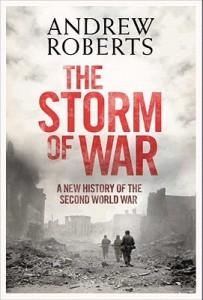
From “Britain’s finest military historian” (The Economist) comes a magisterial new history of World War II and the flawed axis strategy that led to their defeat.
The Second World War lasted for 2,174 days, cost $1.5 trillion, and claimed the lives of more than 50 million people. What were the factors that affected the war’s outcome? Why did the Axis lose? And could they, with a different strategy, have won? Andrew Roberts’s acclaimed new history has been hailed as the finest single-volume account of this epic con?ict. From the western front to North Africa, from the Baltic to the Far East, he tells the story of the war—the grand strategy and the individual experience, the cruelty and the heroism—as never before.
In researching this magnificently vivid history, Roberts walked many of the key battlefields and wartime sites in Russia, France, Italy, Germany, and the Far East, and drew on a number of never-before-published documents, such as a letter from Hitler’s director of military operations explaining the reasoning behind the Führer’s order to halt the Panzers outside Dunkirk—a delay that enabled British forces to evacuate. Roberts illuminates the principal actors on both sides and analyzes how they reached critical decisions. He also presents the tales of many little-known individuals whose experiences form a panoply of the extraordinary courage and self-sacrifice, as well as the terrible depravity and cruelty, of the Second World War.
Meticulously researched and masterfully written, The Storm of War gives a dramatic account of this momentous event and shows in remarkable detail why the war took the course it did.
Verdict: 4/5
Go to top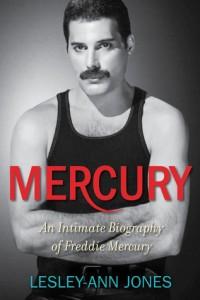
Revealing and intimate, based on more than 100 interviews with key figures in his life, this is the definitive biography of Queen front man Freddie Mercury, one of pop music’s best-loved and most complex figures.
As lead vocalist for the iconic rock band Queen, Freddie Mercury’s unmatched skills as a songwriter and flamboyant showmanship made him a superstar, and Queen a household name. But few people ever really glimpsed the man behind the glittering faÇade.
Mercury was the first major rock star to die from AIDS. Now, twenty years after his death, those closest to him are finally opening up about this pivotal figure in rock n’ roll. With unprecedented access to Mercury’s tribe, rock journalist Lesley-Ann Jones has crafted the definitive account of Mercury’s legendary life. Jones details Queen’s slow but steady rise to fame, and Mercury’s descent into dangerous, pleasure-seeking excesses. Jones doesn’t shy away from Mercury’s often colorful lifestyle—this was, after all, a man who once declared, “Darling, I’m doing everything with everyone.”
In her journey to understand Mercury, Jones traveled to London, Zanzibar, and India—talking with everyone from Freddie’s closest friends, to the sound engineer at Band Aid (who was responsible for making Queen louder than the other bands), to second cousins halfway around the world, an intimate and complicated portrait emerges. Meticulously researched, sympathetic yet not sensational, Mercury offers an unvarnished, revealing look at the extreme highs and lows of life in the fast lane.
Freddie Mercury will be the subject of a major motion picture titledMercury, slated for 2012 production, produced by Graham King, starring Sacha Baron Cohen. This book is a key source for the film. Mercury is the most compelling, up-to-date portrait of an enigmatic entertainer who thrilled audiences around the world with a magnetism matched by few performers.
Verdict: 4/5
Go to topAtul Gawande – Complications: A Surgeon’s Notes on an Imperfect Science (2002)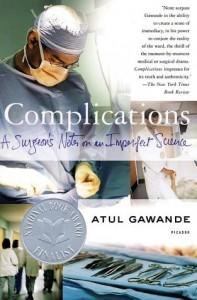
In gripping accounts of true cases, surgeon Atul Gawande explores the power and the limits of medicine, offering an unflinching view from the scalpel’s edge. Complications lays bare a science not in its idealized form but as it actually is—uncertain, perplexing, and profoundly human.
Complications is a 2002 National Book Award Finalist for Nonfiction.
Verdict: 5/5
Go to top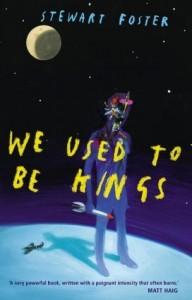
Six years ago Tom’s brother died. The next day he came back.
It’s Tom and Jack’s 18th birthday, but it isn’t a cause for celebration. For the past three years they’ve been in a care home for troubled children, a place where Dr Smith tries to silence the voice of Jack in Tom’s head. But Tom doesn’t want that. He’s already lost his brother once, he’s not going to lose him again.
And so, when they go in front of the review board, they will have to pretend Jack has gone so they won’t be sent to the Young Men’s Institution or they’ll have to escape. Because one way or another they’ve got to get out of this place. They’ve got to be free, they’ve got to remember everything that happened to them, to their mum, and to their dad.They have to find their dad, whom they haven’t seen since he left on a space mission to the moon when they were young.
We Used To Be Kings is the story of a young boy’s descent into madness following the loss of everything he knows. Set in the 1970s, it is reminiscent of unusually hot summers, pictures of Russians in space and war on our doorstep. It’s an audacious, at times hilarious story that is ultimately heartbreaking and unforgettable.
Verdict: 3/5
Go to topJennifer Michael Hecht – Stay: A History of Suicide and the Philosophies Against It (2013)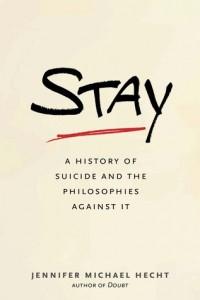
Worldwide, more people die by suicide than by murder, and many more are left behind to grieve. Despite distressing statistics that show suicide rates rising, the subject, long a taboo, is infrequently talked about. In this sweeping intellectual and cultural history, poet and historian Jennifer Michael Hecht channels her grief for two friends lost to suicide into a search for history’s most persuasive arguments against the irretrievable act, arguments she hopes to bring back into public consciousness. From the Stoics and the Bible to Dante, Shakespeare, Wittgenstein, and such twentieth-century writers as John Berryman, Hecht recasts the narrative of our “secular age” in new terms. She shows how religious prohibitions against self-killing were replaced by the Enlightenment’s insistence on the rights of the individual, even when those rights had troubling applications. This transition, she movingly argues, resulted in a profound cultural and moral loss: the loss of shared, secular, logical arguments against suicide. By examining how people in other times have found powerful reasons to stay alive when suicide seems a tempting choice, she makes a persuasive intellectual and moral case against suicide.
Verdict: 2/5
Go to top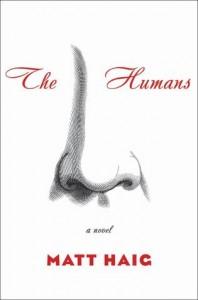
The critically acclaimed author of The Radleys shares a clever, heartwarming, and darkly insightful novel about an alien who comes to Earth to save humans from themselves.
“I was not Professor Andrew Martin. That is the first thing I should say. He was just a role. A disguise. Someone I needed to be in order to complete a task.”
The narrator of this tale is no ordinary human—in fact, he’s not human at all. Before he was sent away from the distant planet he calls home, precision and perfection governed his life. He lived in a utopian society where mathematics transformed a people, creating limitless knowledge and immortality.
But all of this is suddenly threatened when an earthly being opens the doorway to the same technology that the alien planet possesses. Cambridge University professor Andrew Martin cracks the Reimann Hypothesis and unknowingly puts himself and his family in grave danger when the narrator is sent to Earth to erase all evidence of the solution and kill anyone who has seen the proof. The only catch: the alien has no idea what he’s up against.
Disgusted by the excess of disease, violence, and family strife he encounters, the narrator struggles to pass undetected long enough to gain access to Andrew’s research. But in picking up the pieces of the professor’s shattered personal life, the narrator sees hope and redemption in the humans’ imperfections and begins to question the very mission that brought him there.
Verdict: 5/5
Go to topFritz Wenisch – Judaism, Christianity, and Islam: Differences, Commonalities, and Community (2011)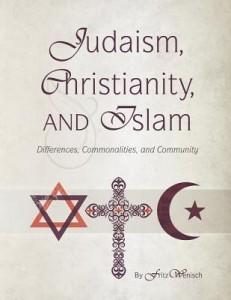
This text seeks to provide a guided examination of what unites and divides the Jewish, Christian, and Islamic communities. With over twenty-five years of experience teaching in the subject area, Dr. Fritz Wenisch begins to unravel this complex and often contentious topic by first discussing the legal injunctions applying to religious studies courses at secular U.S. universities. He investigates the type of monotheism each religion shares before providing an in-depth overview of each religion one by one. An emphasis is placed on the specific teachings of each religion, with consideration given to their practices and their historical development.
Verdict: 3/5
Go to top0
